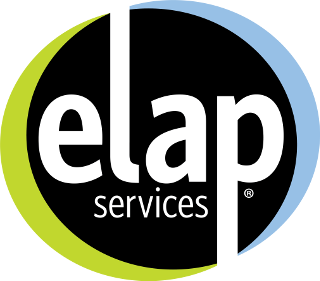Armed with the facts, brokers can offer expert advice about this cost-saving option
The most successful business owners and employers surround themselves with advisers who are experts in their field and can guide companies on making sound business decisions. In an industry as complex as healthcare, brokers are relied on as trusted counsel when it comes to choosing the best benefit options. For brokers to serve as a knowledgeable authority and stay relevant in today’s diverse benefits marketplace, they must be educated on the facts.
Reference-based pricing, also known as metric-based pricing, is a topic that is sometimes misrepresented or misunderstood in the broker community. Astute benefits professionals recognize that reference-based pricing is a viable cost-containment opportunity, and there are good reasons why it’s growing in popularity for self-funded employers. After all, when was the last time brokers could offer employers a solution with the potential to save up to 30 percent on their total healthcare spend?
Guiding clients in new territory
Significant savings aside, some business owners may be uncomfortable with the idea of leaving the familiar insurance atmosphere behind. This is when brokers can exhibit their expertise and help their clients adequately plan for and address potential risks. Brokers can also rely on experienced partners to assist with the design of a health plan that makes the most sense for their clients.
Being engaged and informed enables brokers to encourage clients to push past their initial discomfort and fully understand the value of reference-based pricing. Here are some common myths that surround this type of health plan.
Myth: Balance billing only occurs on plans with reference-based pricing.
One of the most common myths about reference-based pricing is that clients who utilize the solution will put their members at financial risk because of balance billing. In today’s healthcare landscape, more Americans are struggling with medical expenses. Among Americans ages 65 and younger who have insurance, 20 percent said they had problems paying medical bills within the past year.1 In addition, out-of-network providers and specialists are operating at in-network facilities, and this results in unexpected balance bills.
Balance billing, and variations of that practice, is actually quite common and not limited to reference-based pricing plans. According to a new national survey of 2,200 adult U.S. residents by the Consumer Reports National Research Center, nearly one-third of privately insured Americans received a surprise medical bill in the past two years where their health plan paid less than expected.
If a broker selects a proficient and experienced reference-based pricing partner, the likelihood of balance billing is reduced because the solution is focused on fair payment to medical providers. In the instance when a reimbursement is not accepted, the right partner will provide a strong member advocacy program that backs members, advocates for their best interests, and drives toward fair and agreed-upon outcomes for all parties.
Myth: Providers will deny care to patients who have reference-based pricing plans.
First and foremost, the Emergency Medical Treatment and Active Labor Act (EMTALA) prohibits medical facilities from denying care to any patient in an emergency. In non-emergency situations, companies that utilize reference-based pricing and provide a reasonable reimbursement with a fair profit margin to medical facilities find that the vast majority accept the payment. On rare occasions where access is denied, experienced reference-based partners can negotiate a resolution for that specific episode of care.
Partnering with a reference-based pricing solution that includes line by line, in-depth auditing for each medical service is another way brokers can be confident that medical facilities will be compensated fairly and promptly. A quality provider of reference-based pricing solutions will also guide brokers appropriately regarding client fit and regional market conditions. The existence of collaborative relationships with area health systems is another indicator of a reference-based pricing partner that is doing their due diligence to prioritize fair provider reimbursement and minimize push back.
Myth: Employers using reference-based pricing will end up battling hospitals.
It’s worth repeating that the vast majority of medical providers will accept adjusted payments that are calculated using valid metrics to determine fair reimbursement amounts. If a facility does not accept a reference-based payment, there are many steps before the situation escalates to legal action.
In fact, sitting down and speaking with a medical facility can help lead to positive resolutions for everyone involved. When community businesses and hospital systems come to the table, there are significant advantages for both the health systems and the employers. Working together to find solutions creates the opportunity for a positive ripple effect of benefits.
If a resolution cannot be reached, it is important that brokers and employers are partnered with a reference-based pricing solutions provider with a strong patient advocacy sector. A quality solution provider will assure that members and employers are protected against unfair billing, collections and potential litigation.
Grow your business with reference-based pricing
With the correct information and tools to reduce risk, brokers can guide well-suited clients to utilize reference-based pricing as a tool to reduce healthcare spend, which can help business owners and employers transform their business. Offering reference-based pricing as a solution can help brokers remain in the center of the healthcare benefits discussion and help them to grow their business, attract new clients and retain current clients.
Being knowledgeable about reference-based pricing gives brokers an opportunity to showcase their expertise to clients, and choosing a proven partner enables them to offer a viable solution with significant cost savings.
1 Becker’s Hospital Review, Becker’s Hospital CFO Report, Even 20% of insured Americans face burdens of medical debt: 5 key survey findings, January 5, 2016
Blog
Explore the latest insights, articles and thought leadership from the health insurance experts at ELAP Services.







